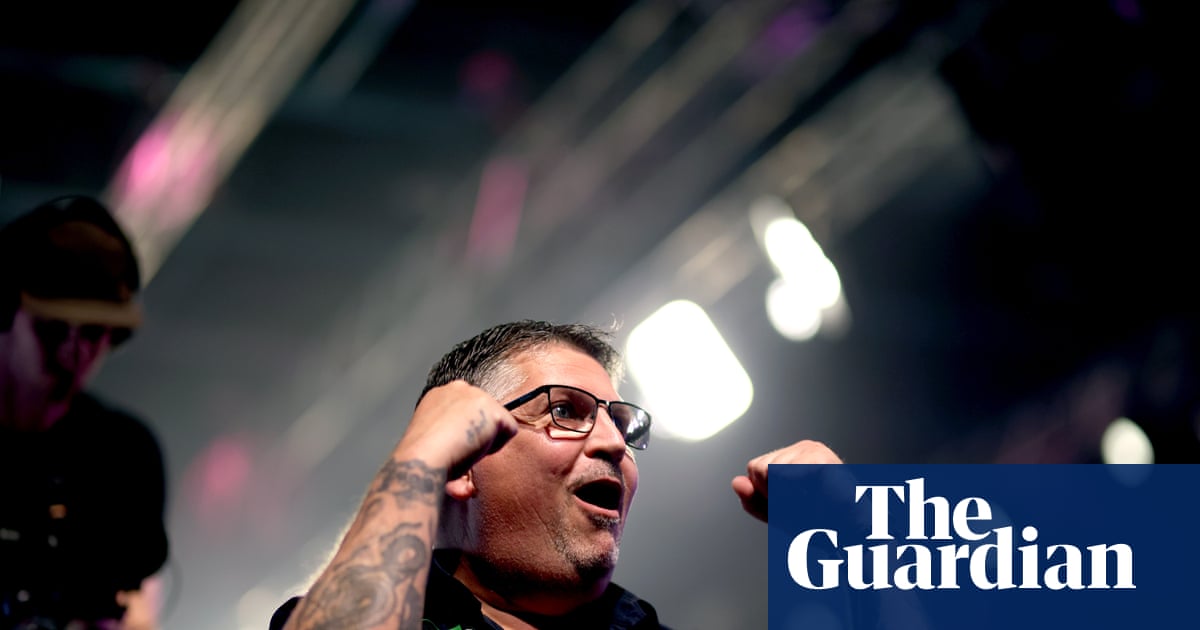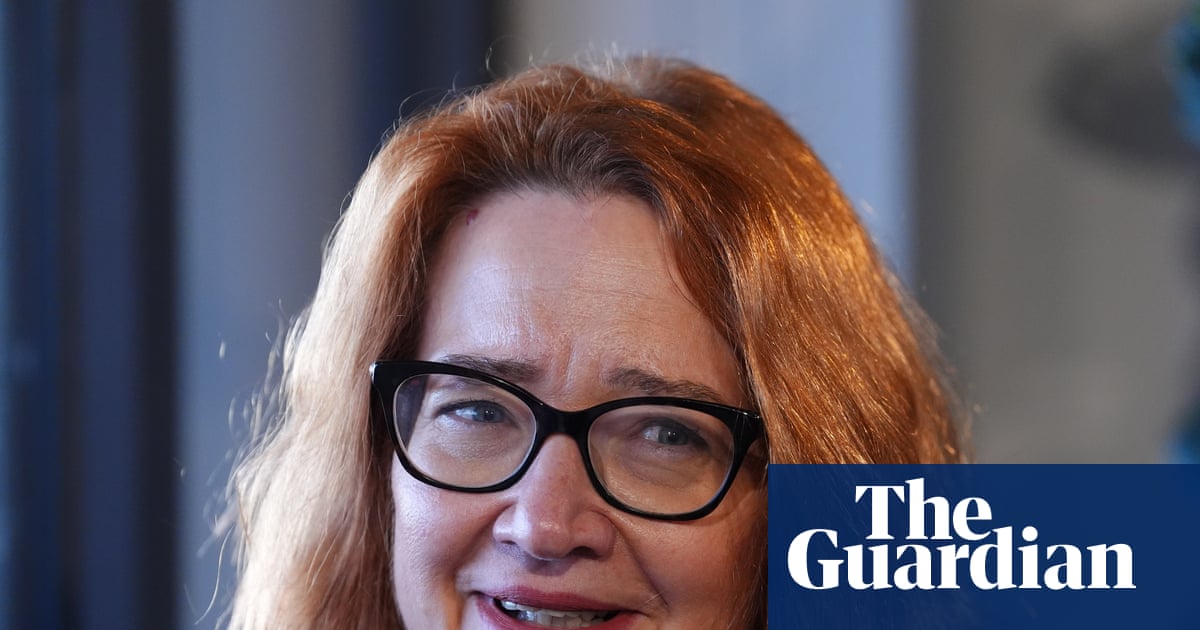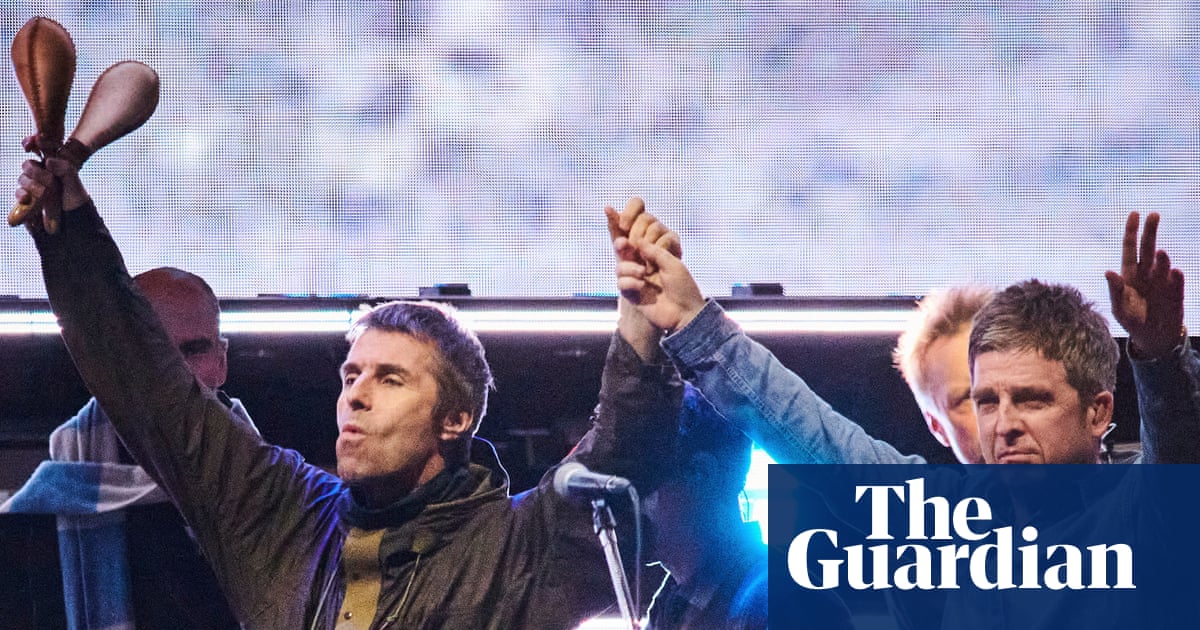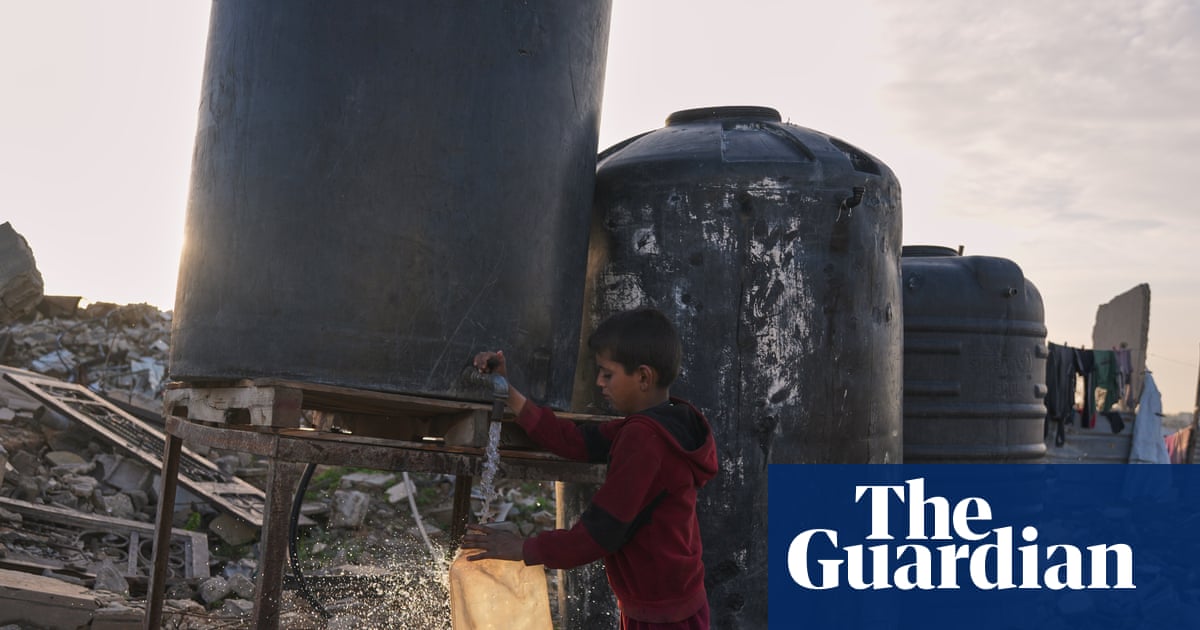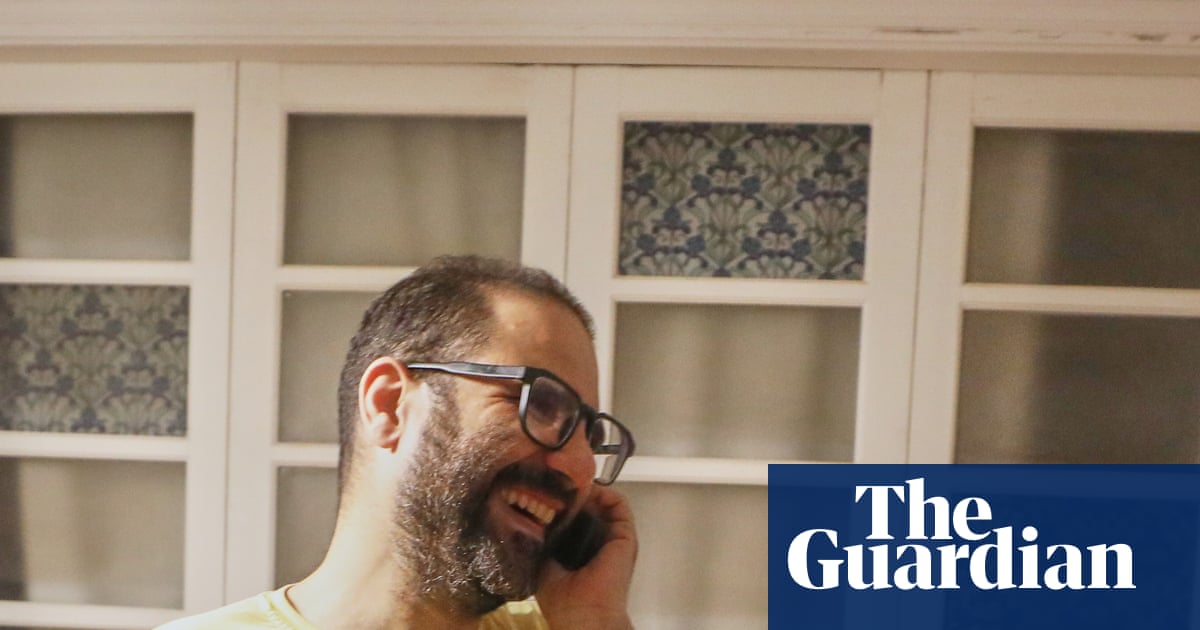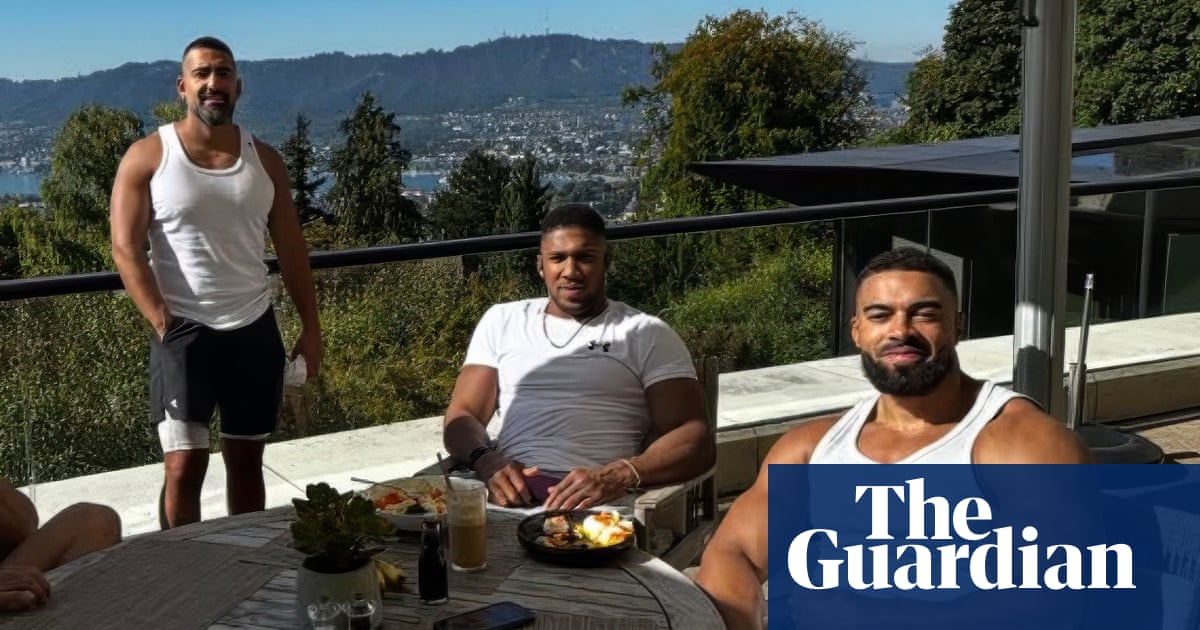On 4 April, Amadou Bagayoko died suddenly, aged 70, in Bamako, Mali. The country’s ministry of culture announced the news. Thousands attended the funeral, including former collaborators Manu Chao, Youssou N’Dour, Malian–French rapper Mokobé and Congolese superstar Fally Ipupa, all paying homage to a man they knew as an uncle, a blues-guitar giant, a leader, a friend.
“I miss him so much,” says Mariam Doumbia, his wife and musical partner of 44 years in the duo Amadou and Mariam. “We did everything together. We travelled together. We composed together. The sound of his guitar is always between my two ears. Especially at night, it comes into my mind. Even right now, I just heard it.”
Dressed with characteristic verve in white lace, gold jewellery and black shades, Doumbia is on a video call, to discuss, in French, the duo’s forthcoming ninth album L’amour à la folie. By her side is her son, Samou. This is the first album to be released since Bagayoko’s death.
The day after Bagayoko died, Doumbia was interviewed on French TV. Enveloped in a long white floral headscarf, she recounted how, though he had been ill for a while, he had suddenly taken a turn for the worse. “I took his hand, I put my hand on his hand, on his body, he wasn’t talking, and I said: ‘Ah, Amadou, Amadou, don’t do this, speak to Mariam. Amadou, Amadou. Amadou, Amadou.’” But by the time they reached the hospital, he was gone. “That’s how it happened,” she said and she clapped her hands once. “He was gone, just like that.”
To watch the grief that then engulfs her, on screen, is to feel like a traitor. How dare anyone not avert their gaze out of respect, not turn off the camera, not leave her alone? Then again, since they first stepped on stage together in the 1980s, Amadou and Mariam have expressed their love as something they wanted to share with the world. In their sadness, too, Doumbia and Samou have now welcomed fans everywhere. “I want people to party with me, all the time,” says Doumbia. “Especially right now, it makes me happy. It encourages me. It helps me.” Music, meanwhile, “brings joy” and “solves lots of problems”.
L’amour à la folie was completed before Bagayoko died, and the album’s lyrics have an Emily Dickinson quality: taut and pared-back. The album includes new songs and others composed long ago but never sung, and opens with Welcome Home, the couple singing in French: “From the moment you arrived, my love / You were able to change my thoughts, every day.”
Asked what she remembers of their first encounter, Doumbia says, simply: “He found me.” Both had become blind as children, and now, in the mid-1970s, Bagayoko was the famous twentysomething lead guitarist with the band Les Ambassadeurs du Motel de Bamako, fresh off his first international tour. Doumbia was four years his junior, in charge of teaching song and choreography to the younger children in her school, Mali’s Institute for the Young Blind. He enrolled to study Braille and heard her sing and that was that. “When Amadou arrived, we held hands,” she says. “And that’s how we stayed.”
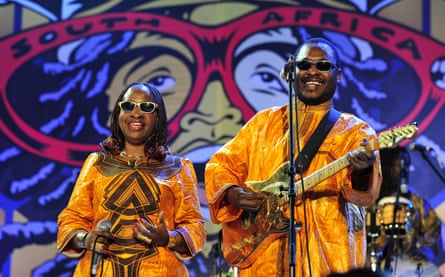
The album’s titular song comes fifth, with a big band intro, extolling the expansiveness of loving with your whole heart (“To love without limits, it’s to love, madly”). Tanu, meanwhile, is an even older song. The couple wrote it while still at the institute, in the Bambara language, “as a thank you”, says Doumbia, “to the people who had helped us”.
“It was tough at the beginning,” she says. “There were no recording studios in Mali. So we went to Côte d’Ivoire, which at the time was a crossroads: everybody went there to record.” They played concert after concert, and met a producer, Aliyu Maïkano – “peace be with his soul, he also died about a month ago” – who recorded with them. “It really worked. Everyone bought our cassettes – they were selling out like hot bread. We decided to come to France.”
In his 2010 biography, Away From the Light of Day, Bagayoko recounts what happened next. France was a massive shock – and very cold. The duo went from being national heroes to complete unknowns. But, he writes: “Mariam and I redoubled our efforts.” They focused on getting the audience to sing with them, in French and in Bambara. “It worked,” he writes. “Hope returned.” On their return to Mali, they went on tour, and caused riots, people were so excited. Doumbia remembered what her mother had told her, he writes: that life was “a pendulum that swings between happiness and misfortune, joy and sadness”.
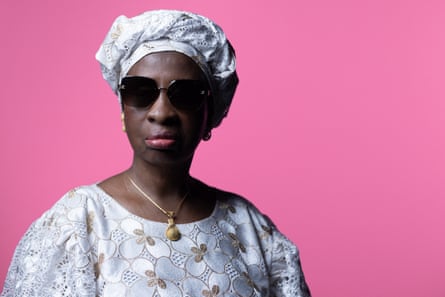
“The love we have, Amadou and me,” says Doumbia, in a poignant mix of tenses, “we want to share it with everyone. Because we loved each other. We listened to each other. We spoke with each other.”
“On s’entendait,” she says, which can be translated in two ways, both of which feel apt: “we heard each other” and “we got along”.
She has started writing a new song, she says: “A homage to Amadou. I’ve started, but it’s not finished.” That must take immense courage, I say. “Yes, it isn’t easy,” she replies, a softness seeping into her tone, then immediately, she counters it. “But I’m a courageous woman. A fighter.”
In what has turned out to be a serendipitous move, Samou had recently started playing with his parents. He only picked up the guitar in his 20s and describes playing his father’s music now as “an honour, a joy”.
It is on stage, Doumbia says, that she feels Bagayoko’s absence most keenly. “He would always stop right there, to my left, with his guitar,” she says. Watch documentation of the two of them in concert, at dinner or waiting in an airport lounge with their gear at their feet, and you see her briefly resting her head or her hand on his shoulder. You also him lighting up whenever she starts to sing. His solidity – that unmovable cool – anchored their sound as much her voice did.
“I’ll continue to make music,” she says. “I ask everyone to keep coming, to keep listening.” Then she gets up, puts on a black fur coat and leans into the camera. “See you next time,” she says in English, with a smile.

 2 months ago
45
2 months ago
45

